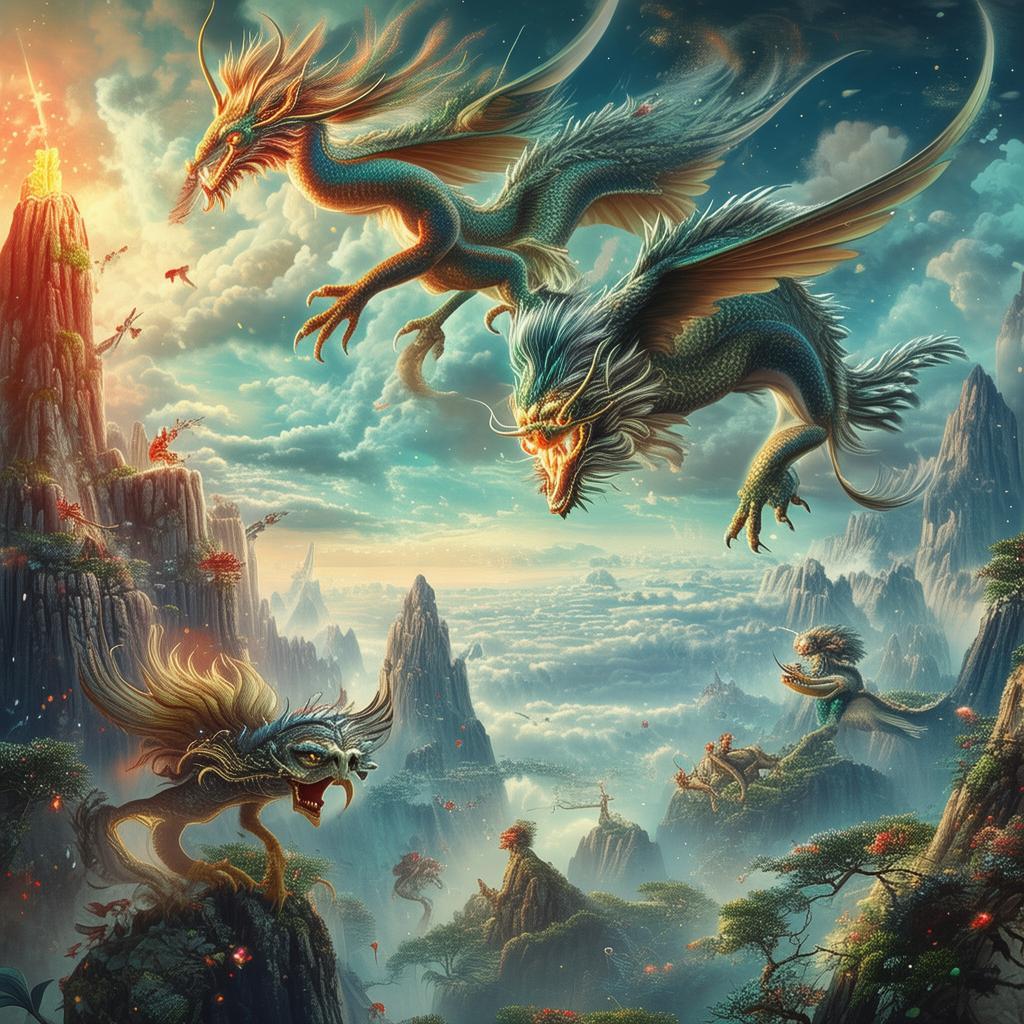The Labyrinth of the Golden Throne
In the ancient land of Elysium, where the sky was painted with the hues of dawn and dusk, and the earth whispered secrets of old, there stood a magnificent city, the heart of which was the Golden Throne. This was the seat of the High King, a position of power and reverence, sought after by many, feared by all. The throne was said to be the source of immense wisdom and strength, but it was also the center of a labyrinth of political intrigue and betrayal.
In the shadow of the throne, a young hero named Aether was born. His parents, both esteemed advisors to the High King, were renowned for their wisdom and loyalty. Aether was destined for greatness, but his path was fraught with peril. The High King, a wise and just ruler, had decreed that the throne would pass to the one who could solve the Great Labyrinth, a riddle that had baffled the greatest minds of Elysium for centuries.
As Aether grew, he was tutored in the ways of politics, warfare, and diplomacy. He was a brilliant strategist, a master of arms, and a diplomat with a gift for persuasion. However, he was also a man of principle, a trait that would prove to be his greatest asset and his greatest weakness.

The day of the Great Labyrinth arrived, and Aether, along with a select few, was led into the heart of the labyrinth. The walls were adorned with cryptic symbols and enigmatic puzzles, each more difficult than the last. Aether, with his keen intellect and unwavering determination, was the first to reach the final chamber, where the Golden Throne awaited.
But as he approached the throne, a voice echoed through the labyrinth, "True power is not found in the seat of a throne, but in the courage to face one's own heart." Aether paused, reflecting on the words. He realized that the true test was not merely to solve the riddle, but to overcome the darkness within himself.
As he sat upon the throne, Aether felt a surge of power, but it was not the power of the throne that he felt, but the power of his own convictions. He understood that the throne was a symbol of leadership, not a source of power. It was his decision to lead with wisdom and compassion that would determine his legacy.
But Aether's journey was far from over. The High King, who had been watching his every move, saw the truth in Aether's heart. The High King, a man of great foresight, had known all along that the true heir to the throne was not the one who could solve the riddle, but the one who could face the labyrinth of his own soul.
The High King, in a move that shocked the court, declared that Aether was the rightful heir to the throne, not because of his intellect or strength, but because of his character. The courtiers were divided, some seeing Aether as a weakling, while others saw him as a beacon of hope.
As Aether ascended to the throne, he faced a new challenge. The court was rife with intrigue and betrayal, and Aether's rule was tested at every turn. He had to navigate the treacherous waters of politics, balancing the needs of his people with the demands of his own conscience.
One day, a trusted advisor approached Aether with a proposition. "Your Majesty, there is a conspiracy afoot to depose you. If you wish to maintain your throne, you must act swiftly and decisively." Aether, knowing the weight of his decision, sought counsel from his closest advisors.
In the end, Aether chose a path of peace and understanding. He confronted the conspirators, not with force, but with reason. He listened to their grievances and offered a compromise that would ensure the stability of the kingdom. The conspirators, seeing the sincerity in Aether's words, agreed to his terms.
Aether's rule was marked by prosperity and peace. He was a king who listened to his people, who valued wisdom over might, and who believed that true power lay in the hearts of his subjects. His reign was a testament to the fact that the greatest strength comes from within.
And so, Aether's legend grew, not as the conqueror of the Great Labyrinth, but as the king who conquered his own fears and doubts. His story became a myth, a tale of courage and compassion, a reminder that the true power of a leader lies not in the throne, but in the heart.
✨ Original Statement ✨
All articles published on this website (including but not limited to text, images, videos, and other content) are original or authorized for reposting and are protected by relevant laws. Without the explicit written permission of this website, no individual or organization may copy, modify, repost, or use the content for commercial purposes.
If you need to quote or cooperate, please contact this site for authorization. We reserve the right to pursue legal responsibility for any unauthorized use.
Hereby declared.









